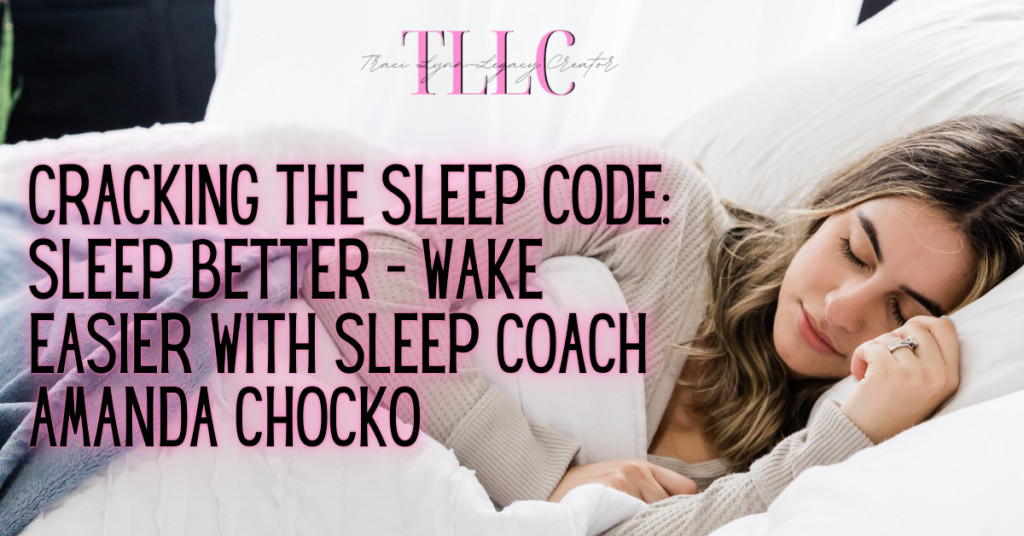In the hustle and bustle of modern life, sleep often gets overlooked or relegated to the bottom of our priority list. Many of us view it as the evil stepsister of productivity, something to be sacrificed in the pursuit of success. Or maybe you are someone who goes to bed at a decent hour but has a hard time falling asleep or staying asleep so taking sleeping aids becomes a part of the nightly routine. Too often, sleep isn’t taken seriously. We don’t plan for it, nor do we take the necessary steps to ensure we have the best sleep possible or the best sleep possible naturally without sleep aids.

It’s time for a paradigm shift.
We need to start thinking about sleeping differently. Rather than treating it as an afterthought, it should be regarded as the cornerstone of our health routine, the foundation upon which our physical, mental, and emotional well-being rests.
In my interactions with clients discussing concerns ranging from weight gain and stress to irritability, mood swings, depression, or memory issues, a consistent pattern emerges inadequate sleep quality often underlies these issues. When I delve into their sleep patterns, often, the response is a resounding “not enough.” Yet, what surprises many is the revelation that their waking habits, not solely their sleep routines, are primarily responsible for their sleep challenges.
This issue is so important that I invited Amanda Chocko Nutritional Therapy Practitioner, Sleep Coach, and Author of the book, Relax Sleep Thrive: Your 5-Week Journey to Peaceful, Restorative Sleep to be a guest on the Age Slayers with Traci Lynn Podcast. Have you ever wanted to feel more “awake” when your alarm goes off? Do you snooze the alarm several times, hoping that more sleep will help? Only to feel even more tired? This was me until I started incorporating new habits of my own and additional habits learned from Amanda.
For the following tips to be most effective, it is important to understand the body as it relates to sleep. We start to feel awake in the morning when our bodies recognize that it is daytime either by the natural sunlight or other forms of light. Light produces the hormone cortisol in our body which starts the “waking” process. If your alarm goes off in a dark room your body does not produce cortisol and instead responds as if it is still nighttime.
Becoming sleepy occurs when your brain recognizes it is nighttime through natural darkness or from creating an environment that mimics darkness. If you watch TV or phone screens your body believes it is daytime and will not produce melatonin. Melatonin is produced only in darkness or the perception of darkness.
Now that we know how the body responds – Here are 5 steps that can help you create a positive circadian rhythm that leads to happy sleeping (and waking) patterns.
1. **The Power of Light**
If you wake up in a dark room, a sunrise alarm clock is a great way to mimic the sunrise and to alert your body that it is daytime. This simple change has not only helped me wake up more naturally but also significantly improved my waking experience. This is the one I use: It can be found on Amazon also.
2. **Evening Rituals for Better Sleep**
Lowering lights and turning off screens an hour before bed has been a game changer. Replace late-night TV with winding down activities that don’t involve screens, like reading or meditative breathing. Create a consistent evening routine so that the body will start to recognize that sleep is near.
3. **Mind Dumping Before Bed**
Worry lists and to-do lists may not sound like bedtime material, but transferring your thoughts from my mind to paper can drastically reduce bedtime anxiety. Laying down with a mind bustling with the day’s residues can cause prolonged sleep latency—the duration it takes to fall asleep. Clearing my mental cache can make slipping into sleep smoother and quicker.
4. **Responsible Eating and Drinking Habits**
Adjusting what and when you eat, and drink has been transformative. stop consuming caffeine post-noon and avoid heavy meals three hours before bedtime. Contrary to popular belief – wine does not help with sleep. You may feel sleepy but often it causes people to wake up in the middle of the night. Truly deep, healthy sleep is not accomplished when you drink alcohol before bedtime.
5. **Blue Light Glasses are my new best friend**
By minimizing exposure to blue light in the evening, blue light glasses help signal to the body that it’s time to wind down and prepare for sleep. This can result in improved sleep quality, including faster sleep onset, less nighttime waking, and deeper, more restorative sleep. I wear them if I am working on my computer close to bedtime or if I am watching TV before bed.
Diving deep into the realm of sleep with Amanda brought revelations that reshaped not just my nights, but also my days. I’ve embraced the art of creating a conducive sleep environment and the science behind why these changes are so effective. Optimizing sleep isn’t just about avoiding tiredness; it’s about enhancing overall well-being.
To work with Amanda or order her book visit:
Let’s recognize that investing in our sleep is investing in our health, happiness, and success.
It’s time to give sleep the respect and attention it deserves. After all, a good night’s sleep is not just a luxury; it’s a fundamental human need. And by honoring that need, we unlock the door to a brighter, healthier, and more fulfilling life.